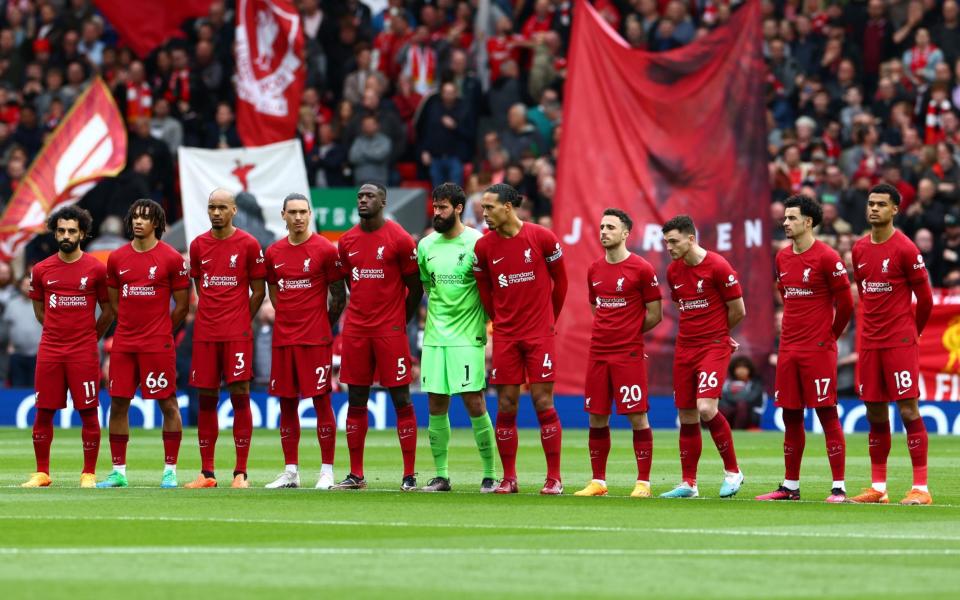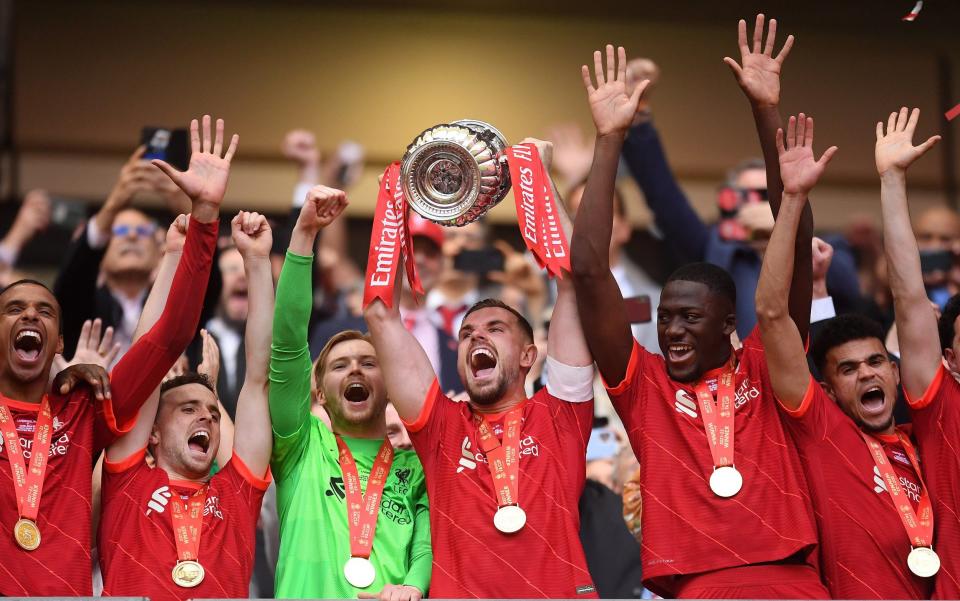
The latest episode of ‘anthem watch’ was never going to play well in this stadium. Believing themselves ordered to behave like deferential subjects, the Kop felt bowing dutifully at the feet of the new monarch was not for them.
There were vociferous boos as ‘God Save the King’ was played, accompanied by the prolonged chant of ‘Liverpool’. The only banner depicting ‘The King’ paid tribute to Sir Kenny Dalglish.
On a divisive topic, there can at least be agreement that the Premier League’s party planning committee needs urgent revamping. Encouraging an exhibition of jingoism at a club whose fanbase has, to put it mildly, a complicated relationship with the establishment is akin to the Scottish FA ‘strongly suggesting’ that red, white and blue bunting be displayed at Celtic Park.
The cultural and social history of all its member clubs may not be a priority for the Premier League when making politically influenced ‘strong suggestions’, but even the most trivial research is informative of how tone deaf it is to anticipate the national anthem being universally well -received at Anfield.
Liverpool’s fans have expressed their distaste for sending anyone but their own team ‘victorious’ before the Wembley Cup Finals since the early 1980s.
Organizing an appropriate venue for a shindig is notoriously dangerous when left so late, too. The coronation date has been set for eight months. Premier League clubs were only notified to mark the occasion on April 28 with an accompanying ceremonial ‘toolkit’ supplied in consultation with the government’s Department for Digital, Culture, Media and Sport.
The Premier League insists there was no mandate to play the national anthem. Given the government’s involvement, Liverpool did not interpret it as a casual invitation and chose to comply under duress, believing themselves vulnerable to pariah status no matter how they responded while pointedly offering no advice as to how their fans should react. The occasion proved to be an avoidable showcasing of dissent.
Presuming Liverpool will one day reach another Wembley final, advisors to the President of the Football Association, Prince William, should facilitate a meeting with Liverpool and its supporters board. Indeed, there is some bewilderment at Anfield that none of the English’s game authorities have ever been inclined to do so.

These seemingly anti-royal sentiments are not coordinated, nor representative of Liverpool as a club, city or indeed 100 percent of its fanbase. They do not reflect personal animosity for the late Queen, the new King or any of his children.
What began 40 years ago as a means by which alienated young fans could highlight their disenchantment with a politically divided nation evolved into a more furious vehicle of protest after the Hillsborough disaster in 1989, when the instruments of state participated in covering up the unlawful killing of 97 Liverpool fans.
When the anthem plays, those booing believe they are expressing their revulsion at the establishment’s complicity, either directly in the form of the police, or indirectly by those in power who failed to intervene in the prolonged, torturous pursuit of justice.
The other arguments as to why Liverpool fans boo the anthem are well trodden. You can argue those grievances are misdirected being aimed at King Charles III but there are humanistic reasons why the Kop embraces the words of Rodgers and Hammerstein over those of John Bull, ‘You’ll Never Walk Alone’ having long since assumed a hymn-like status as a tribute to the Hillsborough victims and their families. That was sung with even more gusto on Saturday.
That’s the anthem which resonated most as players lined up in the shadow of the Sir Kenny Dalglish Stand, which was opened as the Centenary Stand in 1993 by Her Majesty Queen Elizabeth II.
A great many fans booed, the pro and anti-Liverpool tribes took their position and a football match proceeded. It is just a shame that what happened earlier could have been so easily avoided.
Broaden your horizons with award-winning British journalism. Try The Telegraph free for 1 month, then enjoy 1 year for just $9 with our US-exclusive offer.